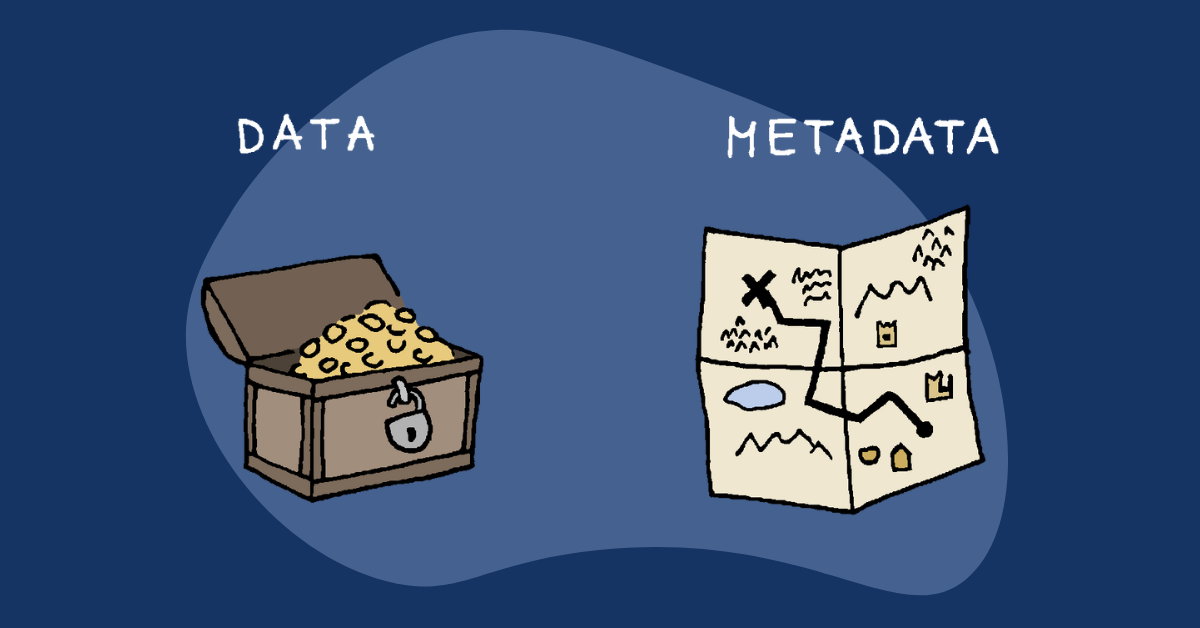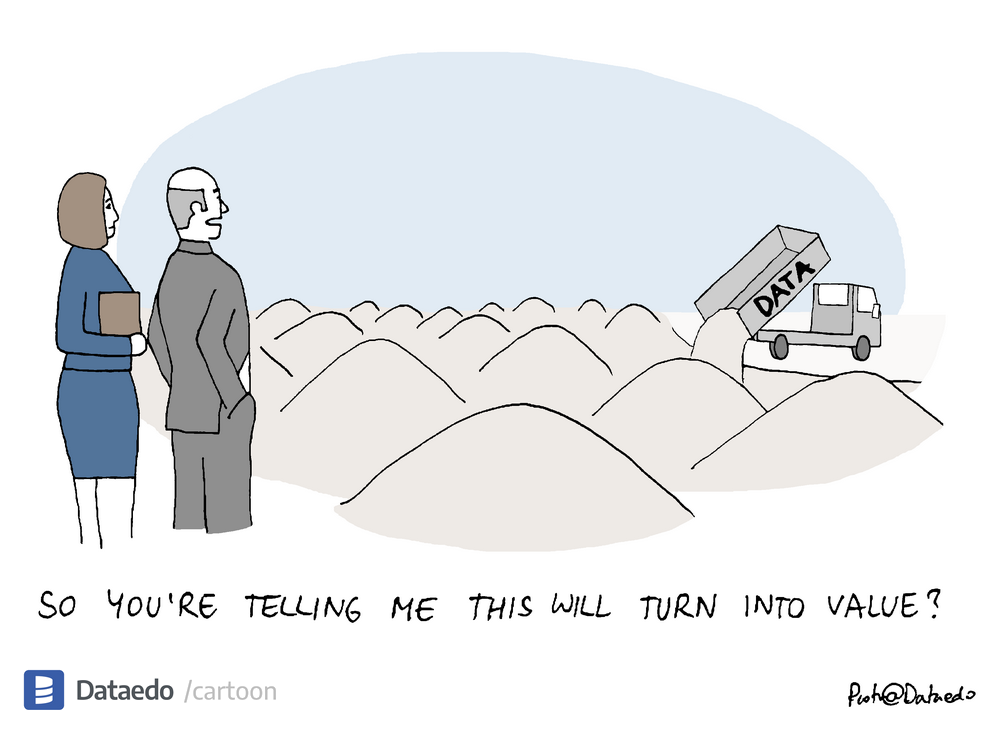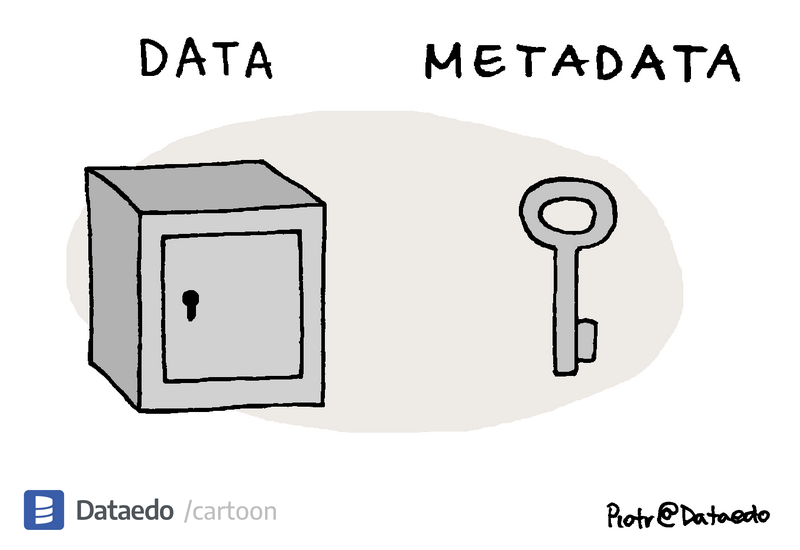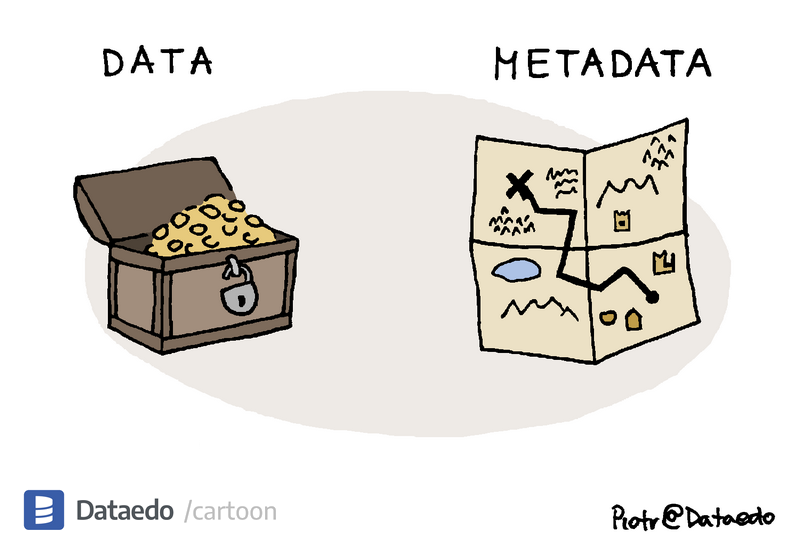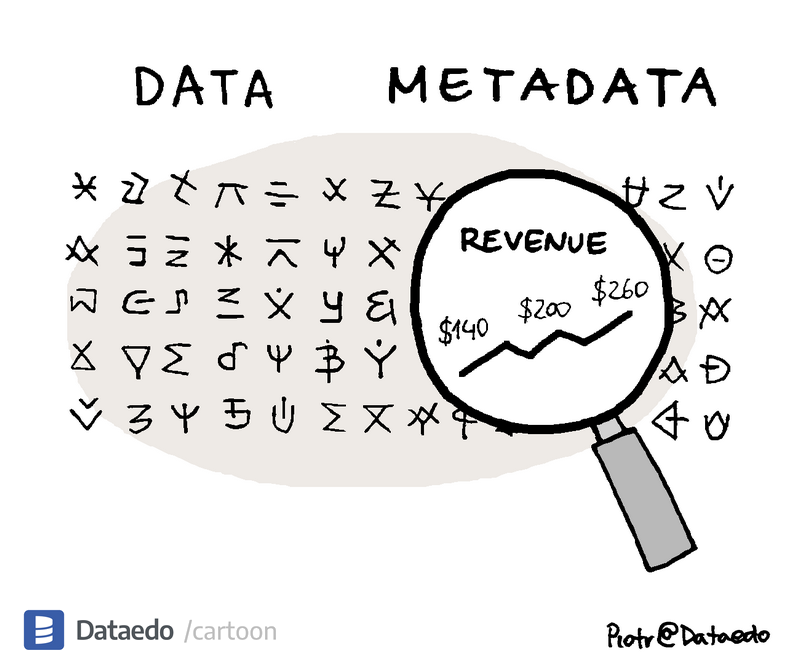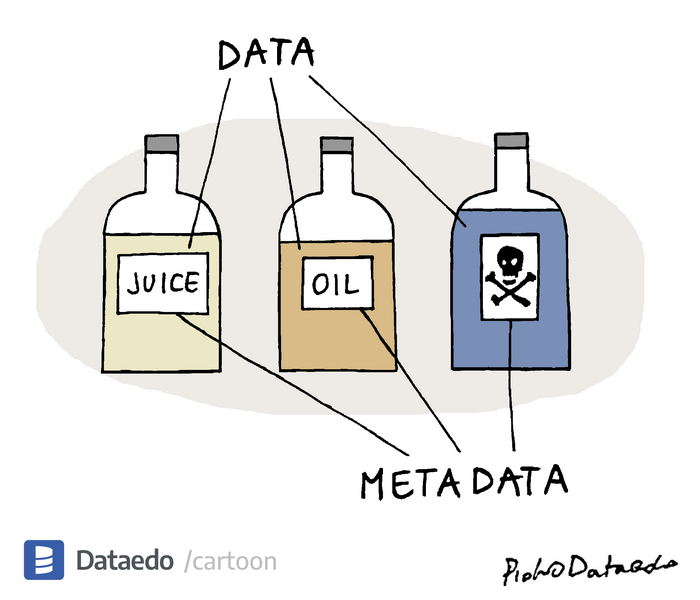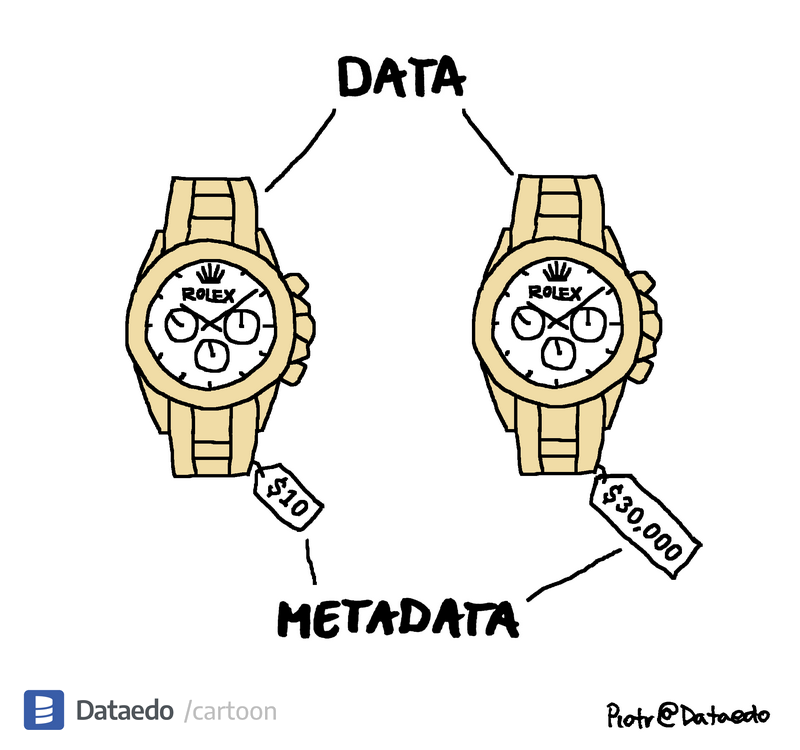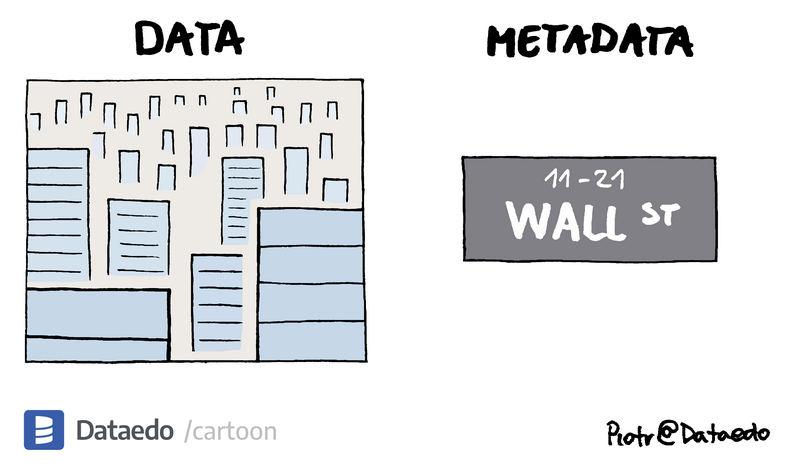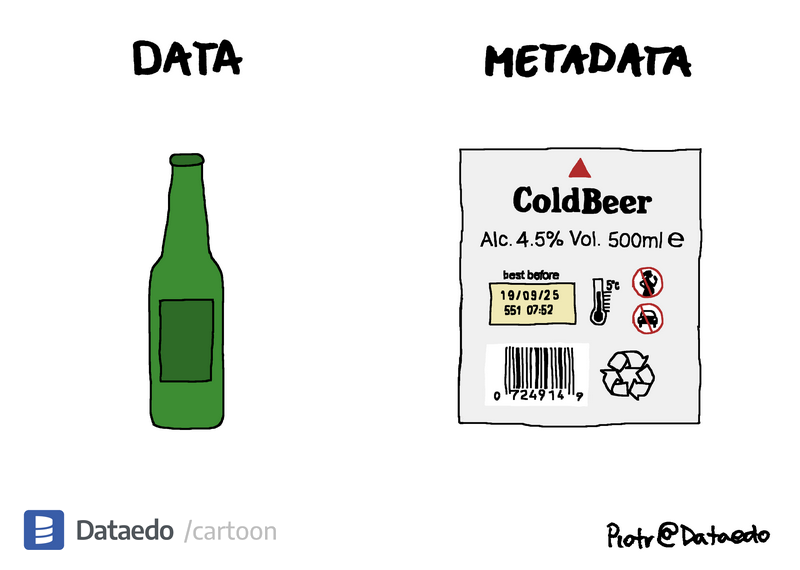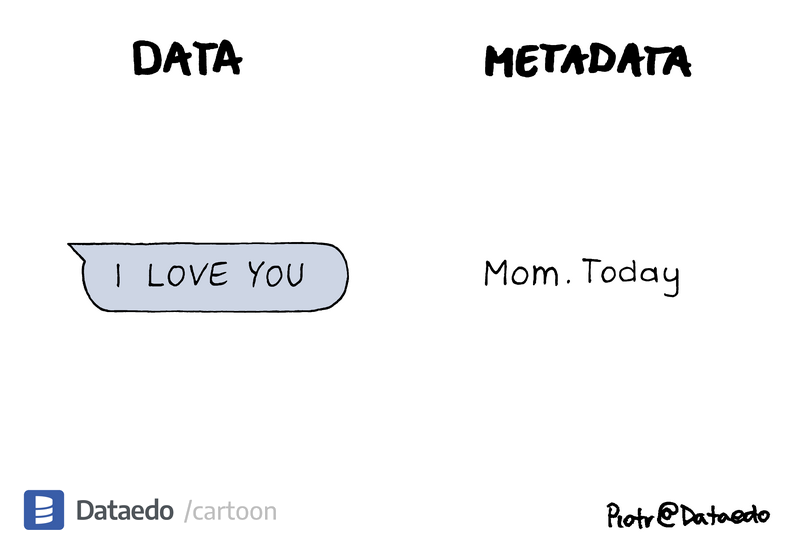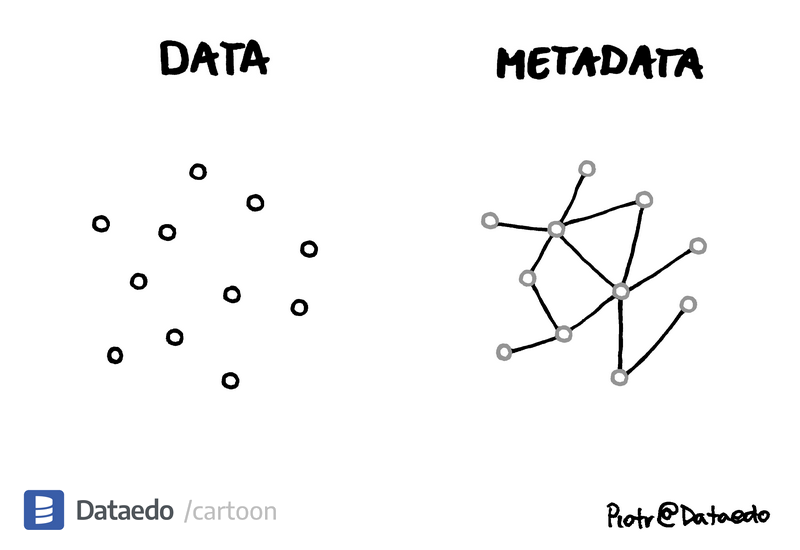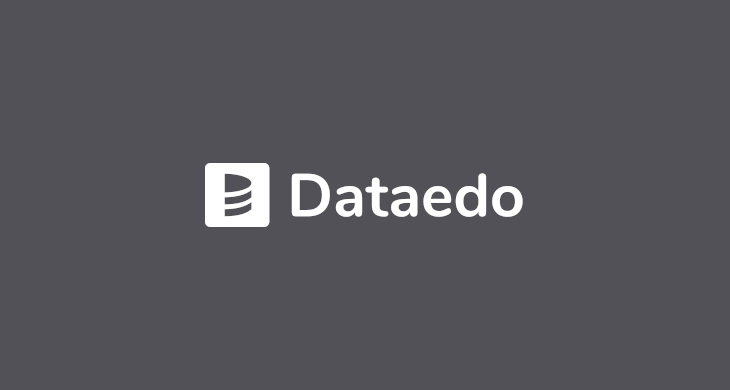For many people the concept of data & metadata might be confusing. To put it shortly data is a collection of raw and unorganized facts, while metadata is data about the data. To make that difference easier to understand, let’s take a closer look at data and metadata definitions, differences, and real-life examples.
What is data?
Data is a collection of raw and unorganized facts that can be used in calculating, reasoning or planning. Without proper processing and organizing, it is useless. That’s where metadata comes into play.
What is metadata?
Metadata is simply data about data. It means it is a description and context of the data. It helps to organize, find and understand data, through information such as format, origin, creation date, modification date etc.
What are the key differences between data and metadata?
Here are some of the key differences between data and metadata:
| Data | Metadata | |
|---|---|---|
| Definition | Collection of raw and unorganized facts | Data about the data |
| Information | May or may not be informative | Always informaive |
| Processing | May or may not be processed | Always processed |
| Storage | Database | Data Dictionary |
Now you know the definitions, let's see some illustration examples to make things more clear.
Data vs metadata – illustrations
Metadata is the key to data
Metadata is the the key that unlocks the data. Without that key, you have data but you can't access it.
Data is treasure, metadata is a map
Data is the treasure, but how do you know where it is burried? You need a map. That map is a metadata.
Decoding information
Data stores information, but if you don't know how to interpret it, you don't have access to this information. Metadata enables you to understand data and extract the information.
A Matter of Life and Death
Before you consume it you might want to know more about it.
How valuable?
It may look the same at first glimpse. But a little additional information about it's properties and source can tell you a lot about its value.
How to get to the data?
To find your firends place in a big city you need an address. You need metadata to find the right data in a big database.
Are you a metadata consumer?
You might know what (data) you are consuming daily but some additional information can be really useful.
Do you speak data?
You can have great knowledge (data) in your hands, but what if you can't understand it? Well, maybe you need a dictionary (metadata).
PS. The book is "The Art of War" by Sun Tzu.
Context matters
The value of the message (data) may depend a lot on the information of where does the message come from (metadata).
Source matters
Metadata is often this piece of information that can validate or discredit the entire data set.
Connecting the dots
So you have all the data points. Can you link them together to create a story? Often not without additional contextual information - sometimes called metadata.
Manage your metadata
It’s not enough to have the data to be able to get value from it. Without proper names, descriptions, and classification your data will be worthless or, in the best-case scenario, extremely hard to use.
This is why you need a metadata management solution such as Dataedo. Dataedo allows you to describe data schema with metadata - tables, columns, and relationships, then visualize the data model and share comprehensive documentation with everyone in your organization. That will allow even non-technical people self-service data discovery and analysis.












